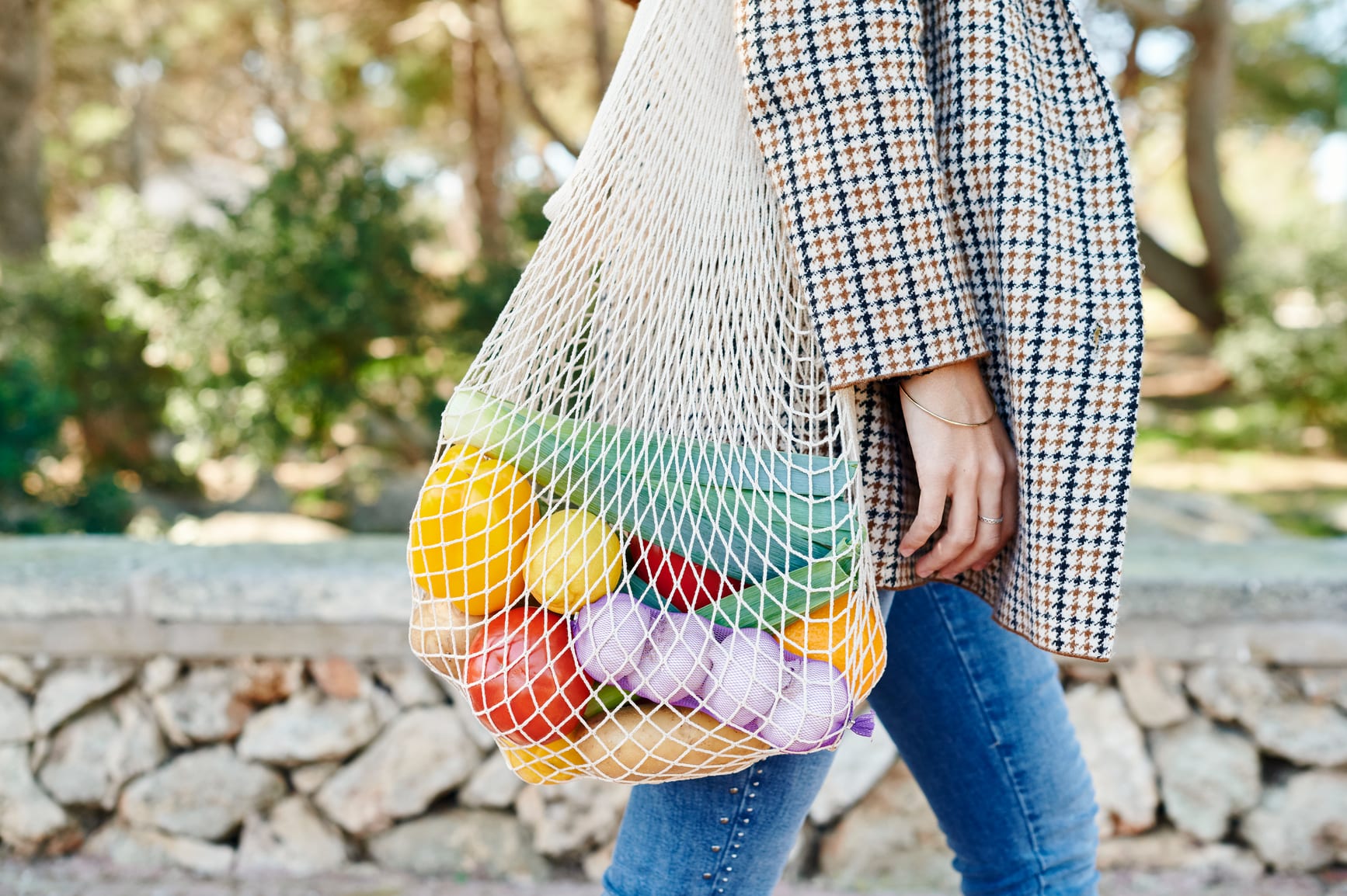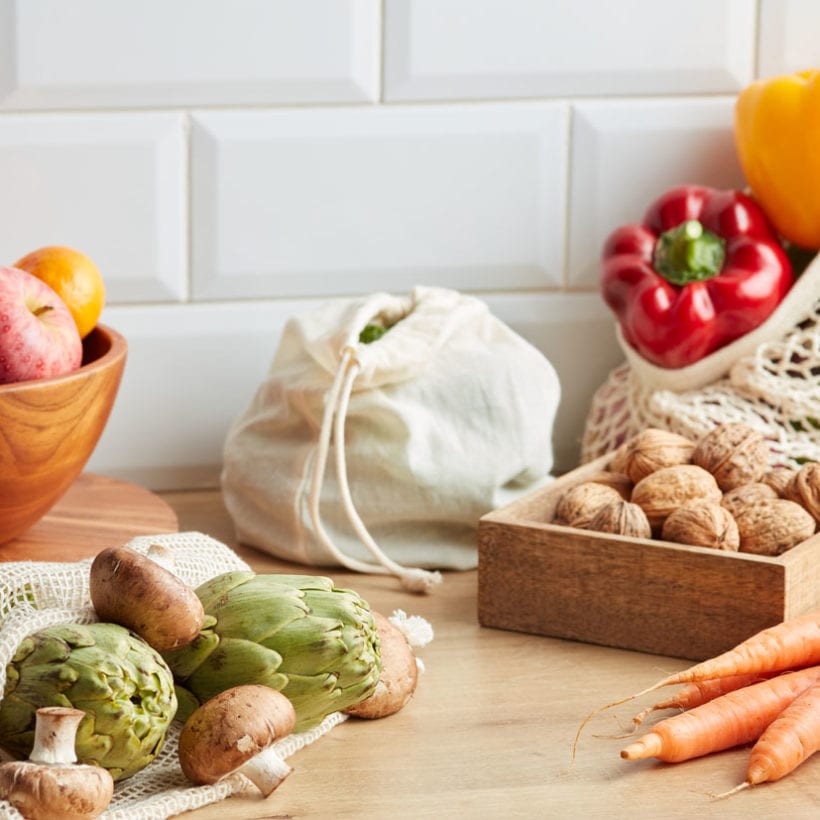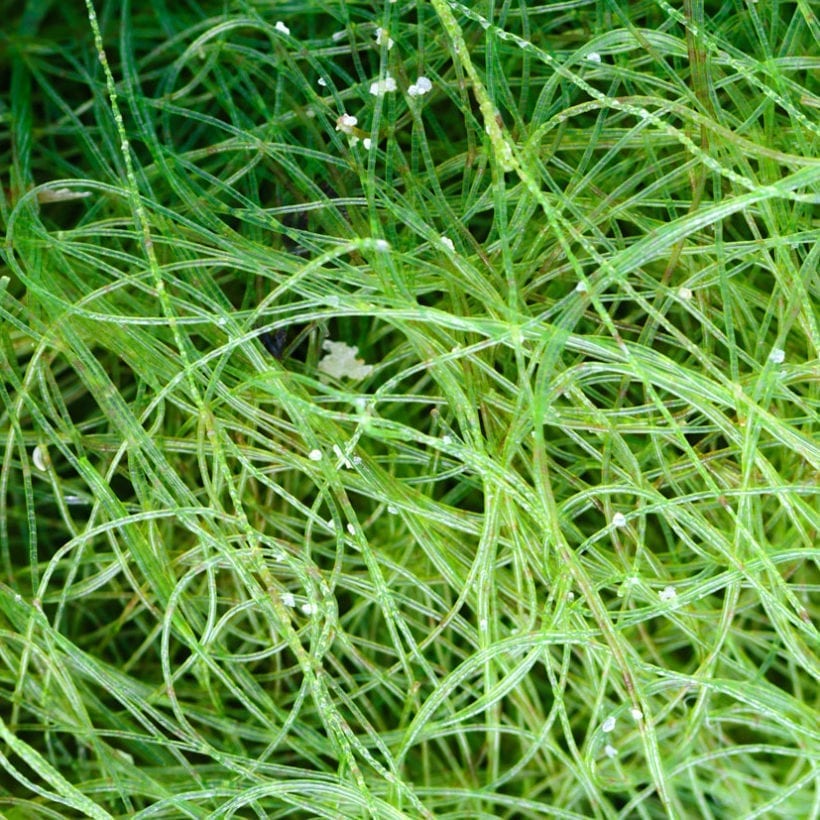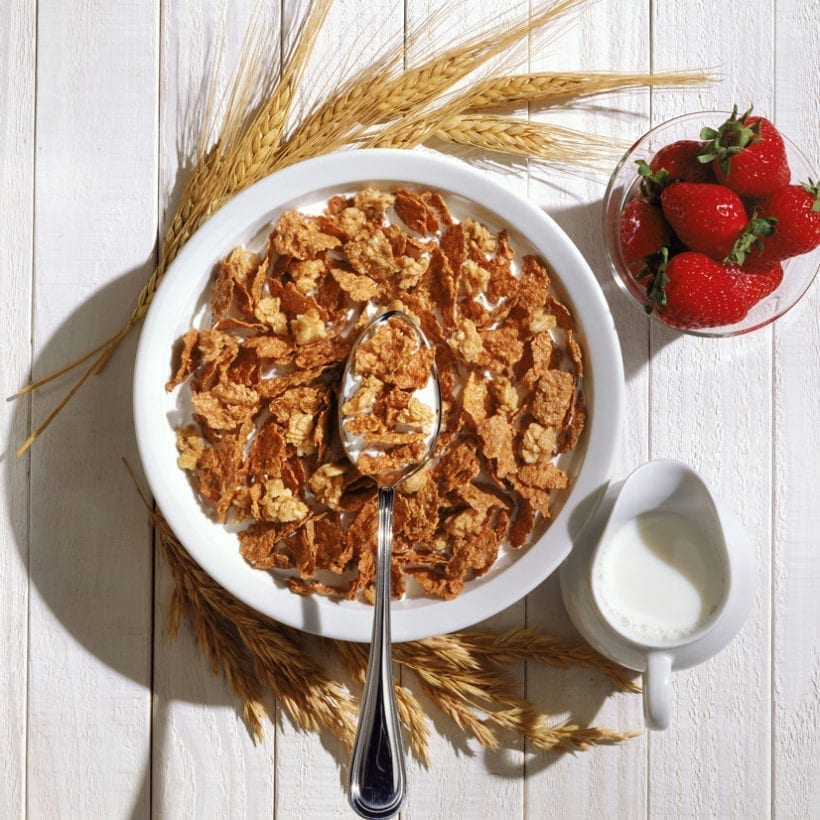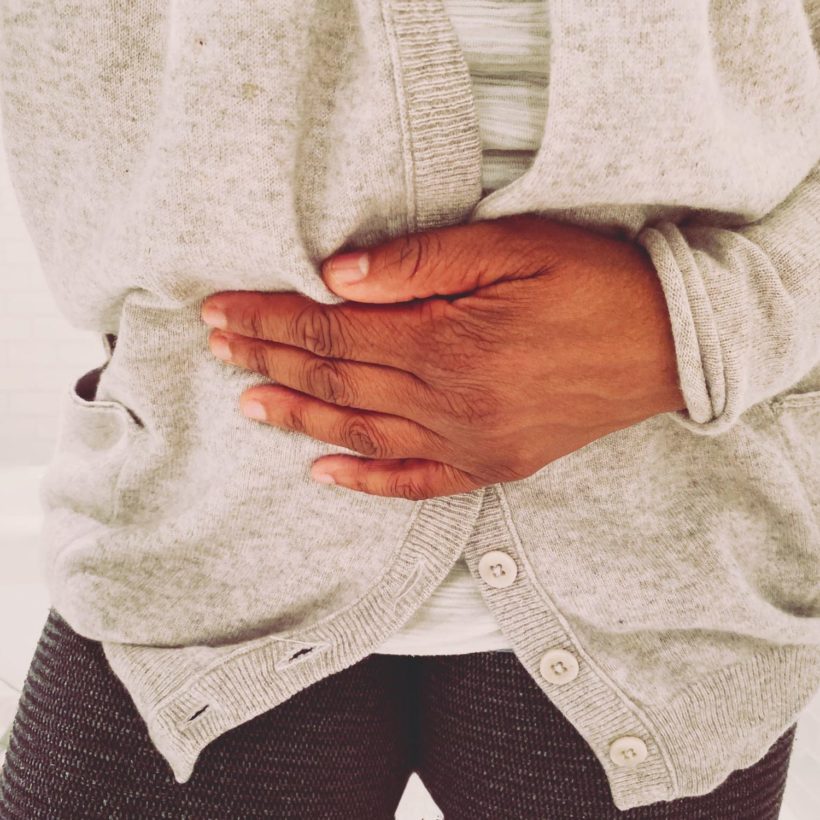Like many people during the pandemic, I’ve become a TikTok user. Though I don’t create much content, I find scrolling through videos is a light-hearted, relaxing break in the monotony of my days. And, believe it or not, I learn so much through these short yet informative, videos.
Recently, there was a trend where creators would let various vegetables or fruits soak in water for up to thirty minutes before eating or cooking with them. Admittedly, I was never someone who diligently washed my produce, usually a quick water run, and I was ready to nom down. But after watching these TikToks in complete horror as dirt and small bugs came off in the water, I became an instant converter. Though the rainbow of veggies is healthy for our diet, nutritionists agree they don’t strictly come clean.
Here, why we should be scrubbing down our goods from Mother Nature, and how to do it effectively:
Why we should be washing our vegetables and fruits
A registered dietitian at the Institute for Integrative Nutrition Sheri Vettel says the number one reason she encourages washing vegetables before eating or cooking with them is to remove any potentially harmful bacteria, such as E. Coli or salmonella. “Ingesting these bacteria can lead to food poisoning, making it worth spending a little extra time rinsing your veggies in the sink,” she explains.
Plus, that shiny appearance certain vegetables have isn’t exactly natural. In fact, Vettel says it’s — wait for it — wax. Often found on cucumbers, apples, eggplants and tomatoes, farms add a blended paraffin wax coating to give it a more attractive aesthetic and reduce moisture loss. However, eating this wax isn’t recommended since it’s not meant for ingestion, Vettel says.
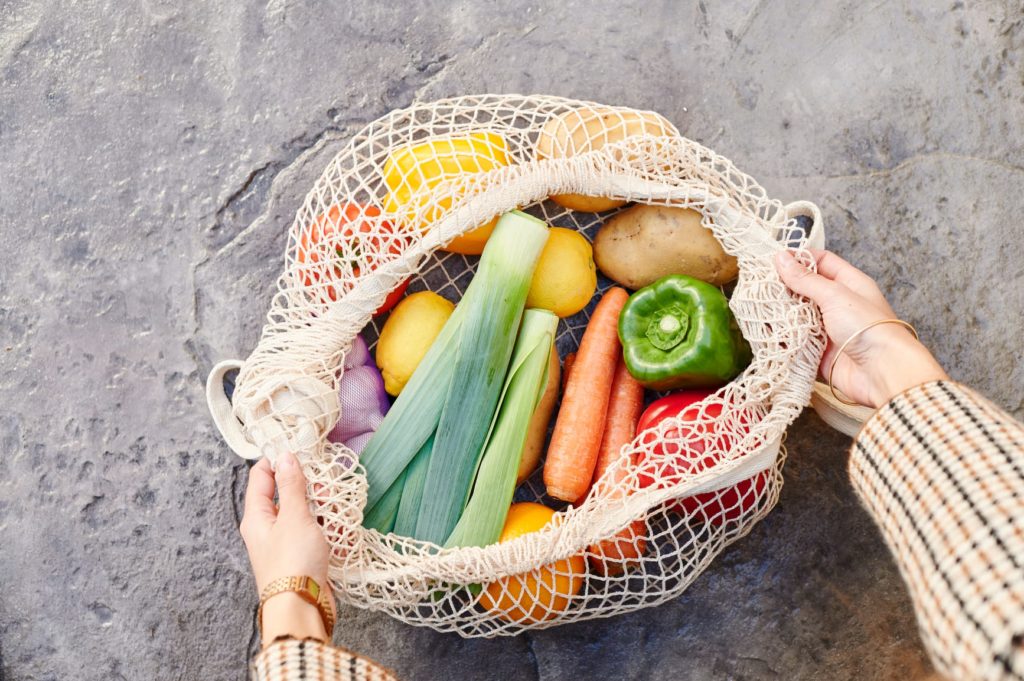
According to the Environmental Working Group approximately 70 percent of the produce sold in the United States contains residues of potentially harmful pesticides. Yep, you read that correctly: 70 percent! “It is critically important to remove those chemicals before eating to prevent toxin build-up that lives in fat cells and tissues,” says functional nutritionist Risa Groux, CN. “When toxins accumulate in the body it is not uncommon to experience symptoms such as fatigue, cognitive issues such as brain fog and memory loss, acne or other skin issues, difficulty sleeping, and depression.”
You may think you are reducing your risk of chemical exposure, but Groux says even organic produce shows up for trace amounts of pesticides. Thus, cleaning all produce before consumption is essential for reducing our toxic load.
The dirtiest vegetables and fruits
Remember, as Groux says, we should be giving all of our vegetables a scrub. However, some tend to be more chemical-filled than others. Each year, the Environmental Working Group releases their ‘Dirty Dozen’ list, which analyzes pesticides on different crops and reveals the ones with the most exposure. Currently, these are the top:
- Strawberries
- Spinach
- Kale
- Nectarines
- Apples
- Grapes
- Peaches
- Cherries
- Pears
- Tomatoes
- Celery
- Potatoes
How to wash your produce
You don’t need to invest in any fancy, expensive sprays or solutions you find at the grocery store. If you have them, it’s okay. They’re still safe to use. But, if you haven’t, you can make your own with essentials you probably already have in your pantry.
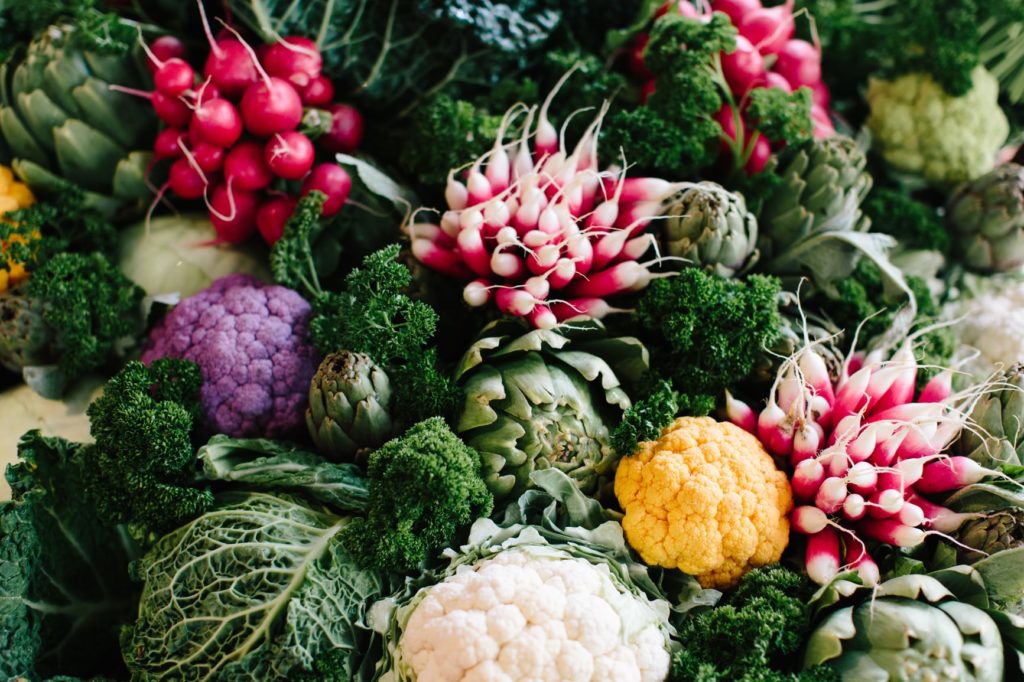
For all veggies:
No matter if it’s green, orange, red, yellow or purple, Vettel says to thoroughly rinse all of your veggies until you see no trace of soil. Since soil is where the bacteria will live and thrive, getting it off is most important.
For firm produce:
Some produce, like apples and zucchinis, has firm skin. Because of this, Vettel says you may need more than your fingers to get through the grime. Try a scrub brush — like you would use for washing dishes — to clean this type of produce.
For non-organic produce, go a step further:
Water is usually sufficient for most produce, but Vettel recommends taking your cleaning a step further if you don’t buy organic. You can do this in a few ways, with baking soda being her top pick. Fill a bowl of water and then add a teaspoon of baking soda. Allow your produce to soak for two minutes. Then, remove it from the solution and rinse it underwater.
Another option for a deep clean is vinegar and water. Groux says to combine one part of white vinegar to four parts cold water and let your produce soak for twenty minutes before rinsing. Or, fill a bowl with 10 percent salt and 90 percent water and let it soak for twenty minutes and rinse. Don’t worry, it won’t change the taste — but it will make your veggies sparkling clean.
We only recommend products we have independently researched, tested, and loved. If you purchase a product found through our links, Sunday Edit may earn an affiliate commission.
